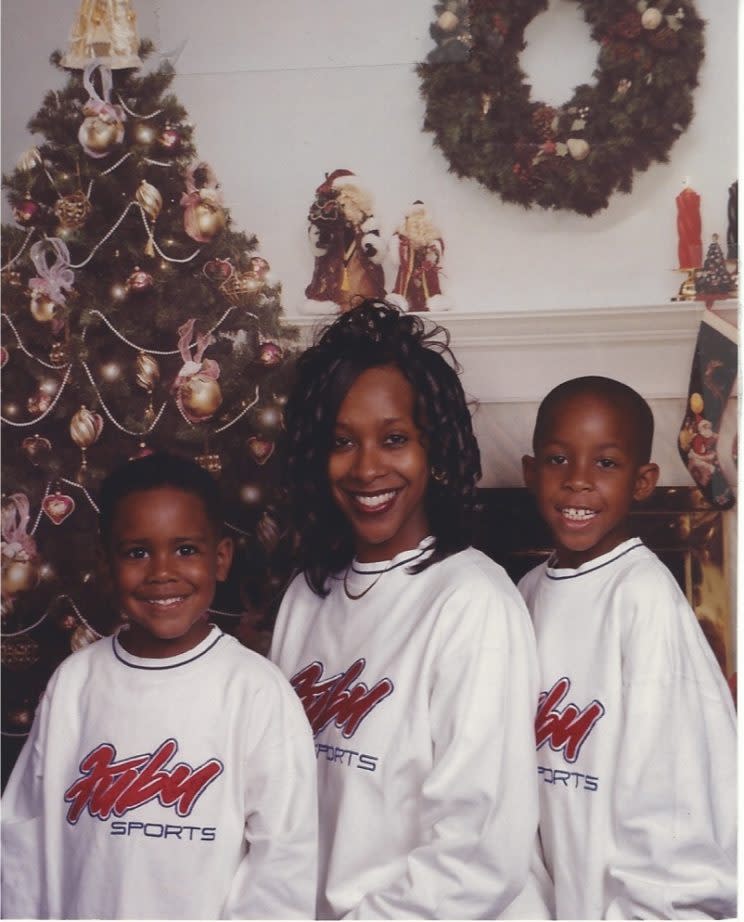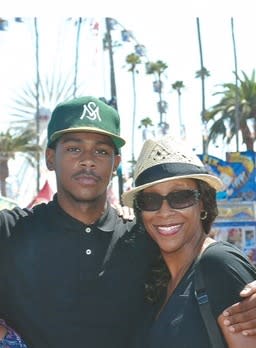Please Don’t Call One of My Kids ‘Cute’ and Not the Other

In honor of Mother’s Day 2017, Yahoo Beauty is running #MyMomStyle essays on how notions of beauty, style, and motherhood mix.
I can’t tell you how many times I’ve had to stop what I’ll call well-intentioned friends and family from complimenting one of my children.
It’s not that I’m opposed to compliments — not at all. A sincere, uplifting word of praise never hurt anyone. But I have a problem when a person compliments one of my children and not another, going on and on to the point that the child not being doted on feels inferior.
The most damaging of all is the “Oh, he’s so cute,” compliment, when that admiration is given to only one child, with the others right there.
But there are more subtle types of damage. Just recently, for example, a very nice woman praised the length and texture of my daughter’s hair. She called it “good hair,” and I could feel my jaws tighten. It’s a deprecating term within the African-American community, born out of slavery, and favors Caucasian-type hair texture, inadvertently discouraging the natural look. Thank goodness my younger child was absent, because, as an intuitive and smart child, he might have asked me, “Does that mean his hair is bad?”

The complimenting of one child over another has even deeper implications in blended families — which, let’s be honest, is the new normal when it comes to family configurations, whether you’ve been married once or never, had several relationships, or chose to become a parent through some other means. All children don’t or won’t look like the parent they are seen with most often. Some will favor their biological father, yet they live with their stepfather. Others will have a striking resemblance to their mother, while another is taller than the entire brood. It can all lead to people slowly sizing up children in these situations — and thinking they’re not being obvious about it, when in fact they are.
I know it happens in the African-American community a lot, but it’s not exclusive to us: I’ve been with friends when their dark-haired child is questioned because the mother has red hair, or when a couple consists of a Latin American husband married to a Caucasian woman and people question their mother’s biological role because the children resemble their father.
My oldest boys, now 25 and 23, have different fathers. When they were younger, I dressed them alike, but besides that they were opposites, with my oldest resembling me, and his brother resembling his father. And strangers trained to equate beauty with light skin or a more European look called out features in one child and said nothing about the other.

Now, don’t get me wrong — I don’t want anyone handing out empty compliments, saying something nice because they feel pressured to. I’d honestly rather strangers didn’t address my children at all, or that family and friends at the very least stop focusing on their physical attributes and instead highlight the many positive qualities and skills they possess.
If you’re part of a blended family, you might already feel some type of discomfort when people think they’re not being obvious while slowly sizing you up. The math they do in their heads, trying to count how old your children are or if you’re current partner is their biological father … as if it’s any of their business.
And while we are at, it let’s lessen the amount of shade we throw around while hiding it under a smile — saying “she doesn’t look anything like you or your spouse,” followed by a quick show of the pearly whites. People who do this know who they are. It’s not funny, and most importantly, the kids see you do it.
So for Mother’s Day this year, let’s all take of vow of positivity, because being a mother is hard enough. Let’s be aware that mothering comes in all forms and many definitions. As women, mothers, and caregivers, we need each other and should support one another, seeing that it truly does take a village to raise a child. And finally, if going high instead of low is too much to ask or an example you choose not to follow, maybe try to simply keep your mouth closed. I believe your karma will thank you.
Follow @SharisseTracey here.
Read more from Yahoo Style + Beauty:
We Dare You Not to Smile at This Video of a Baby Brushing Her Mommy’s Hair
‘Vanity Bonded Me to My Elegant Younger When I Was Young. But Then She Fell From Grace.’
Follow us on Instagram, Facebook, and Pinterest for nonstop inspiration delivered fresh to your feed, every day. For Twitter updates, follow @YahooStyle and @YahooBeauty.

